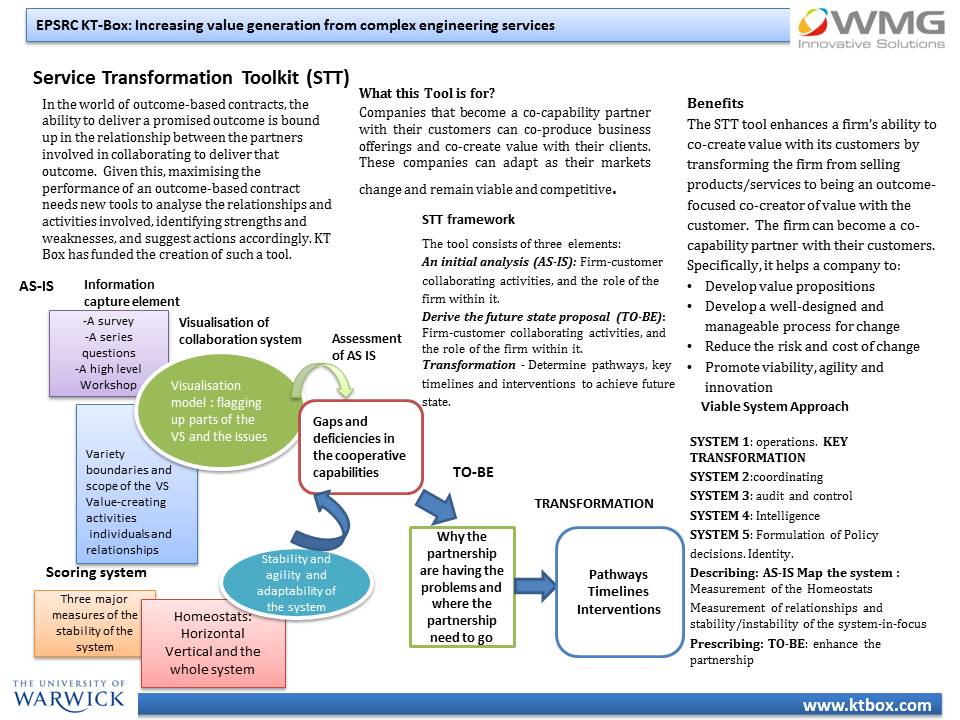KT-Box: Increasing value generation from complex engineering services
KT-Box is an innovative £2.2 million project funded by the Engineering and Physical Sciences Research Council (EPSRC). It involves six universities – Bath, Cambridge, Cranfield, Exeter, Nottingham, and Warwick – working together with industry partners BAE Systems, Bombardier, IBM and Rolls-Royce to develop practical tools and techniques to support organisations in the design, delivery and deployment of industrial services.
The project is a spin-off from the EPSRC/BAE System-supported S4T research project.
Service Transformation Tool (STT)
STT aims to help manufacturing organisations transform themselves into viable customer-oriented organisations capable of managing, supporting and growing value-creating service systems with their customers. Taking a whole-system view, the tool enables manufacturing firms to re-structure and re-evaluate the operational and management elements and viability within the system, as they move towards becoming full-service organisations. STT helps manufacturing firms develop a well-designed and manageable process for change, with reduced cost and risk to achieve high-performance service and manufacturing value propositions.
The tool was developed through several Ministry of Defence contracts, with the support of BAE Systems and Rolls-Royce. The capture section of the tool has been finalised while the analysis and visualisation components are under development, with beta testing conducted with the Ministry of Defence.
STT Case Study |
Co-Creation Capability Assessment Tool (CCAT)
The CCAT is aimed at companies looking to drive value from their strategic relationships through the use of collaborative working practices. It enables companies to understand how well-equipped they are to manage such relationships, and highlights key areas for improvement. The tool’s assessment produces a detailed breakdown of the company’s ability to collaborate, identifying both the driving and constraining forces at play. In doing so, CCAT provides the evidence base from which to tailor working practices that ensure effective and efficient creation of value.
The CCAT was tested at low-cost regional airline Flybe, where it was welcomed as a tool that provided real insight into its current performance and identified key areas for future development as the business grows. CCAT’s development partners, Harmonic Ltd, are actively currently working with companies in the defence and IT outsourcing sectors to scope opportunities to run C-CAT projects.

